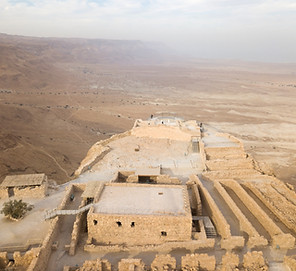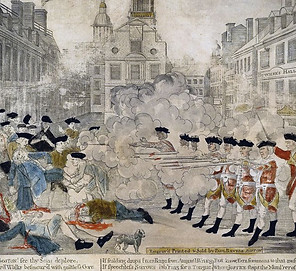
Plymouth State University’s
Curriculum Frameworks
for New Hampshire
Social Studies
Grade Level Content & Standards
Social studies offers a coordinated, systematic, and integrative study of the world. This expansive academic subject helps young people develop the ability to make informed and reasoned decisions for the public good, while practicing necessary skills for citizens of a democratic society in a culturally diverse and interdependent world.
Social studies integrates the humanities and the social sciences in three areas that prepare students for life in a complex world: 1) the development of skills; 2) the acquisition of knowledge; and 3) the cultivation of intellectual curiosity. These three elements help foster the ability to negotiate multifaceted issues, solve difficult problems, and make informed and productive decisions, thereby grounding a lifetime of informed civic and economic engagement.
Drawing on the Past: Reflecting the Principles of Liberty, Justice, and Equality
“Our cultural heritage as Americans is as diverse as we are, with multiple sources of vitality and pride. But our political heritage is one – the vision of a common life in liberty, justice, and equality as expressed in the Declaration of Independence and the Constitution (more than) two centuries ago.
Drawing on the past is an established tradition in American political philosophy. In 1852, Frederick Douglass, despite his own history as a slave, looked to the heritage of democratic principles as an anchor for the future. As he put it:
“…I have said that the Declaration of Independence is the very ring bolt to the chain of your nation’s destiny…The principles contained in that instrument are saving principles. Stand by those principles, be true to them on all occasions, in all places, against all foes and at whatever cost.”
Likewise, in 1863, Abraham Lincoln made an eloquent connection with the Founding Era in the Gettysburg Address. In the 20th century Martin Luther King, Jr. often evoked the Declaration’s principles of equality and liberty to bolster the argument for expanded civil rights. Political theorists of the 21st century have followed the tradition, arguing that the language of the Declaration of Independence linking equality and liberty is ever more relevant as the United States population becomes increasingly diverse.
Linking Past, Present, and Future: Features of the Framework
Consistent with the fundamental principles of liberty, justice, and equality, the Framework provides, at the elementary level, a stronger foundation in history and government, adding standards that address the Civil War, Reconstruction, and the 20th century Civil Rights movement to existing standards on the American Revolution and early Republic. At the middle school level, a new civics course is placed in grade 8. It is designed to ensure that all students will have background knowledge of principles and structures of United States government and individuals’ rights and responsibilities, and serves as an introduction to the study of social studies in high school.
Some standards have been edited or added to present recent historical scholarship and collections of online primary sources have been expanded. The standards reflect renewed attention to origins of the American Revolution and the Founding Documents as a basis for democratic government. The Civil Rights Era of the 1960s inspired a generation of historians to research the consequences of slavery, just as the feminist movement spurred new research into women’s history. In world history, archival and archaeological research has shed new light on interconnections among civilizations in Africa, Asia, and Europe before the period of European world exploration. Libraries, museums, universities, and research centers have contributed to an ever-growing collection of rich digital primary source material posted online for students and teachers to use in their own investigations.
The 2025 Framework includes new components designed to strengthen students’ skills for informed citizenship and political participation. Standards for social studies practice emphasize the skills of formulating questions, conducting research, evaluating sources, and synthesizing information. Standards for literacy in social studies set expectations for analytical reading and logical writing and speaking, skills essential to political equality and civic engagement. At the middle and high school levels, new standards for news and media literacy are designed to help students become discerning readers of digital news and opinion.
History tells us that the preservation of equality, justice, and liberty has never been an easy proposition. Echoing the words of Frederick Douglass, our hope is that these standards and resources will help students “stand by those principles, be true to them on all occasions, against all foes, in all places and at whatever costs.”
A Renewed Mission: Education for Civic Life in a Democracy
The primary purpose of a social studies education is to prepare students to have the knowledge and skills to become thoughtful and active participants in a democratic society and a complex world. “Government of the people, by the people, for the people” is not just a historical phrase from Lincoln’s “Gettysburg Address,” but an ideal that must be renewed and reinvigorated by each succeeding generation. The future of democracy depends on our students’ development of knowledge, skills, and dispositions that will enable them to embrace democracy’s potential, while recognizing its challenges and inherent dilemmas.
People who are prepared to continue the legacy of democracy in the United States:
-
Know the fundamental ideas central to the vision of the 18th century founders, the vision that holds us together as one people of many diverse origins and cultures.
-
Understand the intellectual and political tensions and compromises in the Founders’ ideas and how successive generations in the United States have worked to resolve them.
-
Know how democratic ideas have been turned into institutions and practices, and the history of the origins, growth, and struggles of democratic societies on earth, past and present.
-
Understand what economic, social, cultural, religious, and international conditions have helped to shape democratic practices.
-
Understand the purposes, principles, and practices of the United States government as established by the Constitution, which includes their rights and responsibilities, and how to exercise them in local, state, and national government.
-
Understand that, in the United States, the Constitution has continued to be vibrant and relevant through amendments and decisions of the federal courts.
-
Understand how individuals, groups, organizations, and governments have addressed obstacles to democratic principles by working within the structure set forth in the Constitution.
-
Are knowledgeable about local, state, and national politics and policies, and understand the current condition of the world and how it got that way.
-
Are prepared to discuss complex and controversial issues and ideas with people of different views, learning to speak with clarity and respectfulness.
-
Develop and practice habits of civic engagement and participation in democratic government.
Guiding Principle 1
-
An effective social studies education teaches students about the legacy of democratic government.
-
Study of social studies prepares students to understand their rights and responsibilities as informed residents and citizens of a democratic society and to appreciate the shared values of this country. To become informed citizens, students need to acquire knowledge and experience of
-
the principles and philosophy of government in the founding documents of the United States,
-
the structure and purposes of democratic government in the United States at the national, state, and local level,
-
the structure and purposes of types of government other than democracy,
-
how the concepts of liberty, equality, justice, and human and civil rights shape the United States,
-
the achievements of democratic government and the challenges to maintaining it,
-
ways to act as a citizen to influence government within the democratic system,
-
the importance of respectful public discourse and dissent in a democracy.
Guiding Principle 2
-
An effective social studies education incorporates diverse perspectives and acknowledges that perceptions of events are affected by those perspectives.
-
The traditional motto of the United States is “e pluribus unum” – out of many, one. A social studies education that does justice to the remarkable diversity of our country must tell the histories of individuals and groups, and honor a plurality of life stories while acknowledging our ongoing struggle to achieve a more perfect union. Students should develop their abilities to listen with understanding and learn from people who are different from themselves. Doing so is the only pathway to creating sustainable, equitable solutions for society’s challenges. However, the purpose of education in American society has always been to foster a sense of our collective culture, which is more important than ever in these divisive times. Encouraging a spirit of unity also builds empathy among students, as they begin to recognize kinship with other people and an understanding that they are part of a larger society, even though that society is a diverse one. Nevertheless, there are things that we all share with one another, from rights to traditions. These considerations—unity and diversity—must be carefully balanced in a well-constructed social studies program. Teaching how the concepts of freedom, equality, the rule of law, and human rights have influenced the United States and world history necessarily involves discussions of difference. Effective instruction challenges students to value their own heritage while embracing our common ideals and shared experiences as they develop their own rigorous thinking about accounts of events. Effective instruction celebrates the progress the United States has made in embracing diversity, while at the same time encouraging honest and informed academic discussions about prejudice, racism, and bigotry in the past and present.
Guiding Principle 3
-
Every student deserves to study social studies every year, from pre-kindergarten through grade 12.
-
Like learning to read, write, or perform well in any other subject, learning social studies takes time. An effective social studies education is given adequate time in the school day to build knowledge and skills of increasing complexity. In pre-kindergarten students learn about how cooperation builds community in the classroom, and how all kinds of families and individuals contribute to society. The elementary grade Content Standards are designed to introduce students to the drama of the past, its geographical settings, the habits of good citizenship, and everyday economics, a great deal of which can be integrated with English language arts and literacy, the arts, mathematics, and science. Middle school standards are written to deepen students’ capacity to think logically and conduct research. At the high school level, where students should take at least four full-year courses in United States and world history, the standards require interpretation and synthesis of complex ideas about individuals, groups, events, and institutions.
Guiding Principle 4
-
An effective social studies education teaches students to think historically.
-
Taken together, the standards in this Framework present a broad scope of time and place, from human beginnings to the present, with the intent of helping students understand that their lives are connected to the long sweep of history. Beginning with the third grade study of New Hampshire history, students become acquainted with the concepts of chronology, cause-and-effect relationships, and the role chance plays in historical events. In middle and high school, students learn that complex events have both intended and unintended consequences. By examining primary and secondary sources, students develop an appreciation for the importance of historical context and point of view. They learn that participants in historical events can often hold vastly different ideas about how those events unfolded. For example, what the Spanish considered a “conquest” of a new world in the Americas was seen rather differently by those whose lands were being invaded by foreigners. Students also learn that the work of historical investigation is never static because new evidence – a fresh archaeological find, a lost manuscript or photograph found in an archive – can inspire new connections and interpretations. Because historians of different generations can have different perceptions, it is important that readings include a variety of opinions and historical interpretations.
Guiding Principle 5
-
An effective social studies is inherently cross-curricular, social studies integrates with and enhances other disciplines.
-
Integrating social studies into the other subjects, with the input of trained social studies teachers, offers opportunities not only to educate in this important subject area but also to improve the quality of education in the other core subject areas. Social studies, or the study of people and societies, provides the context for all other subject areas, making them meaningful and relevant to our world today. Social studies allow students to see the importance of each subject area reflected in our history, our government, our economy, and in our ability as a society to make decisions and solve problems. Social studies is the glue that holds all other disciplines together.
Guiding Principle 6
-
An effective social studies education builds students’ capacities for research, reasoning, making logical arguments, and thinking for themselves.
-
In an effective social studies education, students engage in inquiry, reading, research, discussion, writing, and making presentations – these activities are the heart of this Framework’s Standards for Social Studies Practice and link the history/social science disciplines to English language arts and literacy. In the course of applying these practices, students learn how to evaluate texts for bias intended to influence their opinions, and about the patterns of thought and reasoning of historians, geographers, political scientists, and economists. They learn to raise and refine questions and organize arguments and explanations by using structures such as comparison and contrast, cause and effect, or problem and solution. They learn to apply different forms of analysis, including contextually rich reading, visual analysis, spatial/geographical analysis, or quantitative reasoning.
Guiding Principle 7
-
An effective social studies education improves reading comprehension by increasing students’ content knowledge.
-
A rich education in social studies involves extensive reading of challenging grade-level texts, which not only contributes to the development of basic reading skills but also introduces students to concepts and academic language that ultimately improve reading comprehension. Researcher Daniel Willingham contends that “teaching content is teaching reading.” Content knowledge improves reading comprehension because it enables a student to make connections about events and ideas across texts. The Content Standards in this framework are organized to provide a coherent progression of knowledge about history, geography, civics, and economics to support students’ capacity to read with understanding in the elementary and middle grades. This foundational knowledge, in turn, prepares students to read texts that address topics of increasing complexity at the high school and college level.
Guiding Principle 8
-
An effective social studies education incorporates the study of current events and news/media literacy
-
When teaching social studies, teachers have a unique responsibility to help students consider events – including current events – in a broad historical, geographical, social, or economic context. The Framework’s News/Media Literacy standards for grade 8 and high school are designed to help students take a critical stance toward what they read, hear, and view in newspapers and on websites, television, and social media. Applying these standards, students learn to evaluate information, question and verify its source, distinguish fact from inference, and reasoned judgment supported by evidence from varying degrees of bias.
Guiding Principle 9
-
An effective social studies education employs dynamic instructional practices that teach students to form their own conclusions.
-
History and social science teachers have a long history of teaching students in dynamic ways. As social studies touches on almost every aspect of our lives, opportunities abound for educators to incorporate vibrant teaching techniques that challenge and engage students while helping them see the relevance of their academic pursuits to the world around them. Such techniques, which include inquiry-based instruction and co-curriculars, foster student engagement, or the idea that students are interested, active learners in their own education. Student engagement is a critical component of every student’s education, and social studies, more than any other core subject, potentially offers the greatest opportunities for student engagement through a variety of strategies. These include making learning relevant to students’ lives, connecting classroom instruction to students’ interests, emphasizing group work and the sharing of student work, promoting not just student-centered instruction but also student-directed instruction, building instruction around the process of discovery and inquiry, encouraging students to learn how to ask good questions, sparking students’ curiosity, and using mixed media to enrich instruction. Student engagement offers the best chance for long-term student learning.
Guiding Principle 10
-
An effective social studies education helps students become fully functioning adults in a modern, self-governing society.
-
The discipline of social studies is uniquely equipped to offer students ongoing, academically relevant opportunities to practice the skills that will allow them to navigate complex challenges, exercise self-control, interact with those around them in productive and responsible ways, and learn to overcome personal setbacks.Teachers support the development of these skills by:
-
helping students understand how their own unique experiences and ideas influence their perceptions of and feelings about history and current situations (self-awareness);
-
encouraging students’ own power to take thoughtful action (self-management);
-
increasing students’ understanding of others’ fundamental needs and human and civil rights (social awareness);
-
increasing students’ capacity to participate in dialogue across differences and to take on the perspectives of others whose experience and position in the world differs from their own (dialogue and perspective-taking);
-
encouraging students to collaborate respectfully with diverse peers (relationship skills);
-
providing opportunities for students to define and make informed choices when participating in democratic practices (responsible decision making); and
-
creating opportunities for students to work together on projects that aim to promote a public good beyond the classroom, in the school, or in the larger community (civic action).
The following Standards for Social Studies can be applied K-12 and across all of the social science disciplines. The six practices are designed to reflect the work of political scientists, economists, geographers, historians, and ordinary citizens. The Social Studies Practice Standards were intentionally designed to be integrated with the Content Standards and Standards for Literacy in Social Studies. They encompass all of the elements of the research process, and are integral to a robust and rich social science curriculum.
1. Develop focused questions or problem statements and conduct inquiries.
The ability to develop focused research questions in history/social science or define the dimensions of a particular policy problem is central to learning in these disciplines. Students learn that each field in the social sciences has its own ways of defining questions. For example, in studying the Great Depression,
-
A political scientist might ask How did the major political parties, government institutions and the private sector respond?
-
An economist might ask What were the economic causes of the Depression?
-
A geographer might ask How did the Depression affect areas of the United States differently?
-
A historian might ask What related economic, political and social events preceded the Depression?
This Standard corresponds to Writing Standard 7 for Literacy in Social Studies.
2. Organize information and data from multiple primary and secondary sources.
Student researchers gather and organize information from a variety of online, print, and other sources. In the social studies fields, they pay close attention to whether the source is primary or secondary. Primary sources were created during the period under study (e.g., census data, a map, an interview, a speech, or an artifact such as a building, painting, or tool). Secondary sources are later interpretations or commentaries based on primary sources. Often students will use primary and secondary sources together to compose an argument, because each source provides a different type of information. This Standard corresponds to Reading Standards 1-3 for Literacy in Social Studies.
3. Analyze the purpose and point of view of each source; distinguish opinion from fact.
Students need to be exposed to readings that represent a variety of points of view in order to become discerning and critical readers. They need to be able to identify the purpose of a document and the point of view of its author, as well as the historical context in which it was created. As students search primary sources for answers to questions such as What really happened in Lexington and Concord on April 19, 1775?, they begin to understand that eyewitness accounts of the same event can differ. This Standard corresponds to Reading Standard 6 for Literacy in Social Studies.
4. Evaluate the credibility, accuracy, and relevance of each source.
Students investigating a question using online sources often find all too much material, some of it conflicting. The ability to be discerning and skeptical consumers of information is a crucial college, career, and civic skill. Beginning in elementary school, students should learn how and why to assess, verify, and cite sources. This Standard corresponds to Reading Standard 8 for Literacy in Social Studies.
5. Argue or explain conclusions, using valid reasoning and evidence.
The strength of an argument or explanation lies in its logical development of ideas, acknowledgement of counterclaims, and use of reliable supporting evidence. Effective arguments and explanations often go beyond text alone to include well-chosen and relevant visual elements such as photographs, maps, and displays of quantitative data. Students’ ability to adapt a presentation to the task, purpose, and audience and their ability to respond to questions are important skills for civic participation. This Standard corresponds to Writing Standards 1 and 2 and Speaking and Listening Standards 1-6 for Literacy in Social Studies.
6. Determine next steps and take informed action, as appropriate.
One of the main goals of teaching social studies is to provide opportunities for students to practice using the knowledge and skills that enable them to participate in civic life. Some examples of those opportunities include
-
Exploring questions or problems in the form of classroom discussions, essays, research papers, and other products of research;
-
Engaging in discourse about public policy beyond the classroom through social media, letters to the editor, oral presentations in public settings, or community service learning projects. This Standard corresponds to Writing Standards 1 and 2 and Speaking and Listening Standards 1-6 for Literacy in Social Studies.
This framework is a game changer for New Hampshire social studies K-12. These Guidelines for Social Studies Education address the marginalization of social studies in New Hampshire schools. This decline has occurred across the nation, but it is even more pronounced here in New Hampshire, in part because of our tradition of local control. With little state support and minimal testing requirements, social studies has been neglected for far too long in our educational system. This document seeks to reverse that trend and provide teachers, parents, school board members, and administrators with the information they need to address the problem.
A listening tour of Granite State elementary teachers and administrators, conducted by the New Hampshire Historical Society in 2018, made clear that educators were well aware social studies had been getting short shrift, but they faced a number of obstacles in correcting course, even as they acknowledged that the problem extended far beyond the elementary grades. Substantial corroborating evidence supported this view, garnered most notably by the New Hampshire Council for the Social Studies. For school administrators, the lack of updated academic standards (known in this state as frameworks) was chief among those obstacles. The world of education has changed too much for old models, particularly as those models were flawed to begin with.
The New Hampshire Frameworks for Social Studies Education (SSE) produced in 2006 have long needed review and improvement. Independent organizations that favored more prescriptive standards reviewed the Framework immediately after their release gave them an F rating for vagueness and the lack of support for new teachers. Then, in 2013 the National Council for the Social Studies (NCSS) adopted the C3 Framework (college, career, and civic life). These frameworks encouraged the use of the inquiry model across all social studies subjects taught K-12. In 2016, New Hampshire policy required that the DOE reexamine the then decade old frameworks for NH. Then Plymouth State Faculty, John Krueckeberg and Brandan Haas, and present faculty, Kelsie Brook Eckert volunteered as part of this effort that continued to stall.
In 2021, volunteer stakeholders met at the New Hampshire Historical Society (NHHS) to produce Guidelines for Social Studies Education in New Hampshire and recommend alternative frameworks to the outdated New Hampshire Frameworks. This project was directed by the Education Liaison at the society, Elizabeth Dubrulle, who serves on a number of humanities and social studies education boards in the state. Plymouth State faculty, Kelsie Brook Eckert and John Krueckeberg collaborated in that effort. The guidelines began with an urgent call to action, “New Hampshire schools are desperately in need of social studies reform after decades of neglecting this subject area.”Further, they noted that there is a pressing and consistent need for social studies curriculum to be taught and class time defended in the elementary grades where it has been all but eliminated in many New Hampshire school districts. The committee produced guidelines which are detailed below. These guidelines informed the decision to produce these frameworks. The New Hampshire Guidelines can be found here.
The committee identified a number of states whose guidelines would improve SSE in NH, including MA, NY, AL, MI, and GA. The team at PSU sought frameworks that had spiraling curriculum and core knowledge principles, which have been referred to as “Miracles” for student outcomes. The team explored the Fordham Institute’s 2021 nationwide canvassing of individual state requirements to find frameworks that had strong performances. New Hampshire has long had an “F” rating by their measure. Fordham explains that states with inadequate standards have, “overbroad, vague, or otherwise insufficient guidance for curriculum and instruction,”underemphasize key pieces of U.S. and civic curriculum, and have weak requirements for elementary school. The identified successful frameworks which served as a foundation to this framework offered comprehensive support for elementary educators pre-K to 5th grade. These frameworks laid early foundational skills which were reinforced at higher grades, called spiraling curriculum.
In 2024, volunteer faculty at Plymouth State University continued the work that began in 2021 to provide standards for New Hampshire teachers. PSU has prepared history and social studies teachers for over 100 years. In 2024, it boasted the largest Social Studies Education program in the state. The feedback from recent alumni new to the profession, consultations with those on site based licensures around the state, and the limits of professional development to address the needs in social studies education at that juncture, led PSU to take the lead on developing a framework on which they could train undergraduates to best serve New Hampshire schools and provide thorough, rigorous, and well scaffolded curriculum. It was important to this effort to not just list content and skills to be taught, but to also offer guidance and suggestions for tools that could help new educators do that. The framework therefore offers abundant support to new teachers with links to lesson plans and resources vetted and approved by PSU faculty from recognized New Hampshire based and national organizations.
The preference for K-12 spiraling curriculum and core knowledge was informed by the urgent need to create uniformity in core knowledge development for students within and across school systems. Repetition of information in many New Hampshire schools is ad hoc, rather than intentional. High School teachers are tasked with pulling together the threads of what was taught in the lower grades. Further, students who move schools may move from a class on U.S. History to a class on World History in the same grade due to the lack of state level standardization. They might repeat content and miss content crucial to their understanding as citizens. Low income families are often the hardest hit by these discrepancies between schools.
Repeated exposure over time helps students retain information better, building long-term memory. Concepts are introduced in a simple form and revisited in more complex ways as students’ cognitive abilities grow so they can gain a more nuanced understanding of the material. Revisiting topics helps students feel more comfortable with the material, building confidence. The sense of progress as they master increasingly challenging aspects of a topic keeps students engaged.
This document is a uniquely New Hampshire document forged from the basis of other successful frameworks. This document provides substantive guidance to rebuild social studies programs on solid intellectual and pedagogical foundations. The standards laid out here are ambitious and require New Hampshire school districts to make substantial changes. Even if districts can only implement some of these suggestions, adopting any of the reforms suggested here will be an improvement over what we’re doing now. The document builds on the Massachusetts, New York, and C3 Frameworks for Social Studies developed after the C3 Framework was published encouraging inquiry-based instruction K-12. It also includes aspects of the American Psychological, Sociological, and Anthropological Associations (APA, ASA, AAA). After these resources were merged, the full document was rearranged to comply with New Hampshire law and was edited at the topic and standard level by New Hampshire scholars and educators to make a quality and fitting framework for New Hampshire’s youth.
Successful frameworks were initially merged by the Project Director then rearranged by a small committee of executives of New Hampshire social studies organizations (Elizabeth Dubrulle, Kelsie Brook Eckert, Jeffrey Bourque, and Allison Ryder) to comply with New Hampshire laws. The changes made by this group primarily impacted the high school level. Two years of world history were condensed to one and semester courses on Government and Economics were moved from elective to required. Once properly arranged, the document was heavily modified by New Hampshire historians (Dr. Linda Uppham-Bornstein, Martha Madsen, and Elizabeth Dubrulle) to ensure adequate emphasis on State and local topics at every stage of learning. Dubrulle pulled from the 2018 listening tour with Elementary educators to rearrange the scope and sequence of grades 3-6 to better scaffold and spiral historical and civic learning across grade levels.
Following this work, undergraduate students at Plymouth State enrolled in social studies education courses and on track to become certified teachers, were enlisted to improve the standards by suggesting inquiries developed by trusted nonprofits and state-level organizations to teach to each standard. Students were directed to the Moose on the Loose curriculum developed by the New Hampshire Historical Society, Investigating History a project by the Massachusetts DESE, Civics 101 curriculum developed by New Hampshire Public Radio, the Remedial Herstory Project a New Hampshire based nonprofit, the Digital Inquiry Group a Vermont based nonprofit, the Gilder Lehrman Institute, iCivics a Massachusetts based nonprofit, and many other places. Where inquiries were not readily discoverable, Junior-level students suggested compelling questions. The inquiries provided throughout are there as suggestions, tools new and experienced educators can use to address the standard. It is the goal that eventually, every standard will have a corresponding resources to support educators.
After additions and amendments to the document were made by the students and faculty, faculty in other departments were enlisted as content reviewers. Expert scholars from the Political Science, Economics, Geography, and History programs at Plymouth State University reviewed language K-12 as it pertained to their content area. With their approval of the content, practicing, veteran K-12 teachers were recruited to work in collaborative teams during a professional development day at Plymouth State University and reviewed each grade level course. Over the subsequent month, they provided feedback on the frameworks from their experience in the classroom and team leaders were appointed to amend the frameworks based on that discussion: Lauren Connolly, Chris Soule, Kiera Real, and Patrick Toy. Following revision, a link to the framework was shared with social studies educators in the NHCSS, NHDNH, and PSU networks for broader feedback and review. Educators were given access to the document to comment, make suggestions, and asked to fill out a review form. This feedback prompted a new round of revisions to the document. As needed small committees of diverse educators and educational leaders were convened to make decisions.
By 2025, a draft of the document was prepared and shared with organizations for feedback. The document was housed digitally at www.psusocialstudieseducation.com so that it could exist as a living document and new suggestions for inquiries could be added, while the standards remained unchanged. Again, the purpose of the document is to support new educators as they enter the profession of social studies education and to provide guidance to school systems on best practices for New Hampshire social studies. Schools are welcome to adopt the framework at the local level if they so choose, and the resources will remain freely available to aid New Hampshire schools in quality social studies education.
Let us not forget, though, that this is New Hampshire, where we have a long tradition of local control, especially in regard to our schools. School administrators are free to follow the guidance offered here or ignore it, modify it to suit their needs or adopt it wholesale, implement it in part or not at all.
The value of social studies does not lie merely in the cultivation of patriotism, a greater willingness to reconcile with the past, and an improvement in problem solving abilities. It also provides meaning to all other subject areas of student learning. More and more evidence suggests that the marginalization of social studies is contributing to America’s stagnant English language arts (ELA) test scores, despite all the investment made in education in the past several decades. Social studies offers the contextual knowledge that is necessary to raise those scores (especially for disadvantaged students); it shows how
mathematics influences our lives, particularly in a world where decision-making is increasingly dependent on algorithms and data-driven information sources; and it highlights the impact that scientific and technological change brings to all of us across the globe. Social studies is, as one of my colleagues recently noted, the glue that holds all the other disciplines together.
Finally, in a society that is quick to cast blame but slow to solve problems, we want to be clear that there is no bad guy in this story, no villain to this piece. It’s been a slow, inexorable downward spiral of neglect and distraction, with many well-intentioned actors but poor end results. Let’s see if we can change that—if a group of ideologically diverse people can come together to solve a shared problem by employing the Yankee traits that have shaped our culture: pragmatism, common sense, and good old-fashioned Granite State determination.
School-Level Adoption
Plymouth State University is not a governing body for New Hampshire schools. Schools are welcome to adopt or not adopt these frameworks. The goal is that the framework will improve consistency in what is taught and how it is taught across the state, where, at present, schools have a wide range of frameworks used. Individual inquiries (or lesson plans) are merely suggestions. Standards often include suggested figures, events, and examples; these are suggestions and can be modified to reflect current events or the needs of a school.
Endnotes
Empire Center. “Better Results, Lower Spending.” Published March 17, 2021. https://www.empirecenter.org/publications/better-results-lower-spending/.
Pioneer Institute. “Can Massachusetts Reverse the Decline in U.S. History and Civics Performance?” Published April 29, 2021. https://pioneerinstitute.org/blog/can-massachusetts-reverse-the-decline-in-u-s-history-and-civics-performance/.
Fordham Institute. The State of State Standards for Civics and U.S. History in 2021. Published June 23, 2021. https://fordhaminstitute.org/sites/default/files/publication/pdfs/20210623-state-state-standards-civics-and-us-history-20210.pdf.
Harvard Graduate School of Education. “What Impact Have High School Exit Exams Had in Massachusetts?” Published October 24, 2021. https://www.gse.harvard.edu/ideas/usable-knowledge/24/10/what-impact-have-high-school-exit-exams-had-massachusetts.
Project Director:
Kelsie Brook Eckert, MEd Coordinator of Social Studies Education at Plymouth State University
Organizational Advisors:
Monica Squires, New Hampshire Council for the Social Studies Presidents
Elizabeth Dubrulle, New Hampshire Historical Society Director of Education and Public Programs
Martha Madsen, EdM Education Liaison for the New Hampshire Bar Association
Scholar Reviewers:
K-5th Grade Alison Bucholz, PhD Professor of Elementary Education at Plymouth State University
5th Grade Marcia Schmidt Blaine, PhD Professor Emeritus in History at Plymouth State University
5-12th Grade Linda Upham-Bornstein, PhD Teaching Lecturer at Plymouth State University
6-7th Grade Patrick May, PhD Associate Professor in Geography at Plymouth State University
9-10th Grade John Krueckeberg, PhD Professor in History at Plymouth State University
11th Grade Jonathan Couser, PhD Associate Professor of Practice in History at Plymouth State University
11&12th Grade Filiz Rhum, PhD Professor in Political Science at Plymouth State University
8&12th Grade John Lappie, PhD Associate Professor of Practice in Political Science at Plymouth State University
12th Tinglan Yang, PhD Associate Professor of Practice in Economics at Plymouth State University
Teacher Reviewers:
Patrick Mignanelli, Laconia High School
Meredith Brown, Moultonborough Academy
Chris Soule, Gilford High School
Lauren Connolly, Kearsarge Regional High School
Andrea Larochelle, Hopkinton High School
Patrick Toy, Campton Elementary (K-8) School
Katie Chamberlain, Plymouth Elementary (K-8) School
Jay Peringer, Newfound Middle School
Jamie King, Ashland Elementary (K-8) School
Julieenne Provencher, Winnisquam Regional Middle School
Gavin McWeeney, Strafford Middle School
Jaquelyn Santagate, Farmington Middle School
Holly Wilson, Weare Middle School
Monica Wilson, Manchester Middle School
Keira Real, Sanborn Elementary School
Center for Young Children and Families
Undergraduate Interns:
Connor Dobson, Plymouth State University Class of 2025
Riley Flaherty, Plymouth State University Class of 2025
Rene Pinter, Plymouth State University Class of 2025
John Perkins, Plymouth State University Class of 2025
Caleb White, Plymouth State University Class of 2026
Halle Hackenson, Plymouth State University Class of 2026
Tessa Reynolds, Plymouth State University Class of 2026
Grace Pascucci, Plymouth State University Class of 2026
Nick McLatchy, Plymouth State University Class of 2026
Michael Ishkanian, Plymouth State University Class of 2026
Brendan Allen, Plymouth State University Class of 2027
Derrick Brousseau, Plymouth State University Class of 2027
Matthew Perkins, Plymouth State University Class of 2027
Preston Warner, Plymouth State University Class of 2027
Emeritus Educator Endorsements:
Peter Petrigno, retired from Merrimack High School
Dave Alcox, retired from Milford High School
Skills & Content
At the heart of the Standards for Social Studies Practice is the idea that knowledge and understanding arise from inquiry: asking questions, conducting research to find answers, analyzing ideas in discussions, and presenting conclusions. Inquiry serves to deepen conceptual understanding of content, going beyond a listing of names, dates, and facts. The stages of inquiry in the Standards for Practice are intended as a guide, rather than as a rigid linear process.
Developing inquiry-driven curriculum and lessons entails providing opportunities for students to answer both questions developed by the teacher and those developed by students. In the course of any given grade or unit, students should have opportunities to answer both their teacher’s and their own questions about ideas and texts connected to the social studies standards. The questions included at each grade level in the framework are merely samples to suggest the kinds of questions teachers and students might arrive at on their own.
Grade Level Content & Standards
COMING SOON! Click on the grade level below to be redirected to the corresponding page full of suggested standards, inquiries, primary sources, and other helpful resources. Let's get kids thinking like historians and social scientists!
Ut Prosim, that I may serve



















